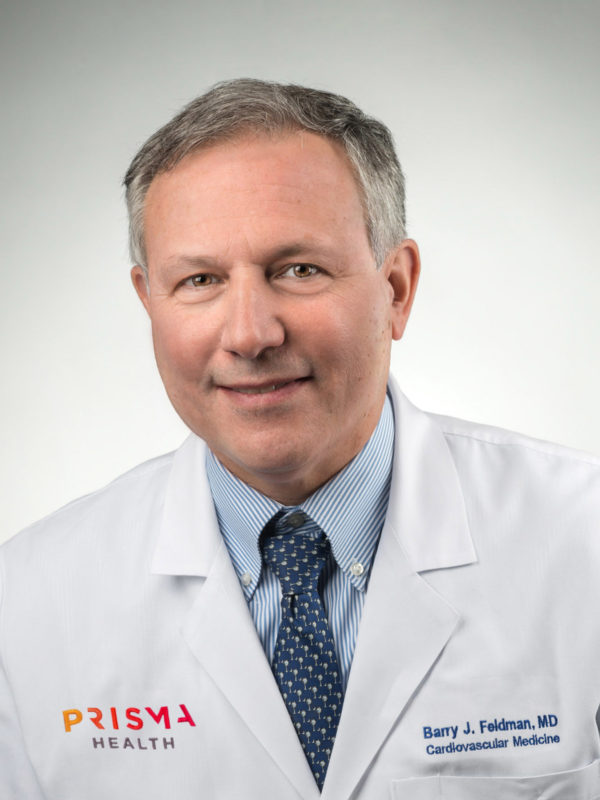5 key risk factors for heart disease
Heart disease is common among Americans. In fact, it’s the leading cause of death in the United States. The good news is there are things you can do to prevent this from happening to you. Cardiologist Barry Feldman, MD, described risk factors for heart disease and what you can do to prevent it.
He said there are risk factors you can change and those you can’t change. These are known as modifiable and unmodifiable risk factors. An example of an unmodifiable risk is having a family history of heart disease. Dr. Feldman said, “Sometimes parents and grandparents can give us good things, but not everything they pass down is good for us.” It’s important that your primary care physician knows about your family history.
Dr. Feldman said these are five key heart disease risk factors:
- High blood pressure. To know whether or not you have high blood pressure, you have to be able to check it. Dr. Feldman recommends having a blood pressure cuff handy or going to your local pharmacy to check your blood pressures and logging your results frequently. If you see a trend of high blood pressures, it’s important to contact your primary care physician to see if you need to be checked. Your physician can put you on a treatment plan that may include a change in diet, increased exercise and medications. Your physician may also want you to make changes in your lifestyle that decrease your stress, such as yoga or meditation.
- Cholesterol. There is a misconception that all cholesterol is bad for you. However, cholesterol is essential to the body. When your cholesterol levels are high, that’s when it becomes bad for you. High cholesterol levels are associated with your diet, so try to eat more good cholesterol, or unsaturated fats such as avocado oils and olive oils, and avoid bad cholesterol, or saturated fats such as coconut oil and saturated fat from meat. Unfortunately, having high cholesterol can be genetic, so making sure that your primary care physician knows about your family history could prevent you from heart disease related issues down the road.
- Type 2 diabetes or pre-diabetes. These conditions are often related to your weight and diet. With diet and exercise, you can better control your blood sugar levels or even prevent yourself from becoming diabetic. Dr. Feldman said, “We live in a fast food society. There are more sources of high caloric foods, especially lots of sweets, available now. We recommend our patients who are pre-diabetic or have type 2 diabetes go on a low carbohydrate diet.”
- Cigarette smoking. Quitting smoking is one of the more difficult risk factors to change because it is an addiction. However, there are lots of new tools to help people quit, such as smoking cessation programs, hypnosis and medications that can be very effective. People who smoke should also think about the environment they are in when they smoke, such as when friends are smoking or activities that increase the desire to smoke. Try to avoid environments like these to prevent the desire to smoke.
- Family history of heart disease. It’s important you see your physician regularly so they can monitor your health and provide a prevention plan if needed.
Some other modifiable risk factors are your weight, diet and lifestyle. By incorporating a healthy diet and regular exercise into your daily routine, you can work to get to a healthy weight. These lifestyle changes not only help your heart health, but your overall health as well.
Find a doctor
Whether you’re looking for a primary care physician or need to see a specialist, we’re here to help with experienced, compassionate care near you.
Find a Doctor

